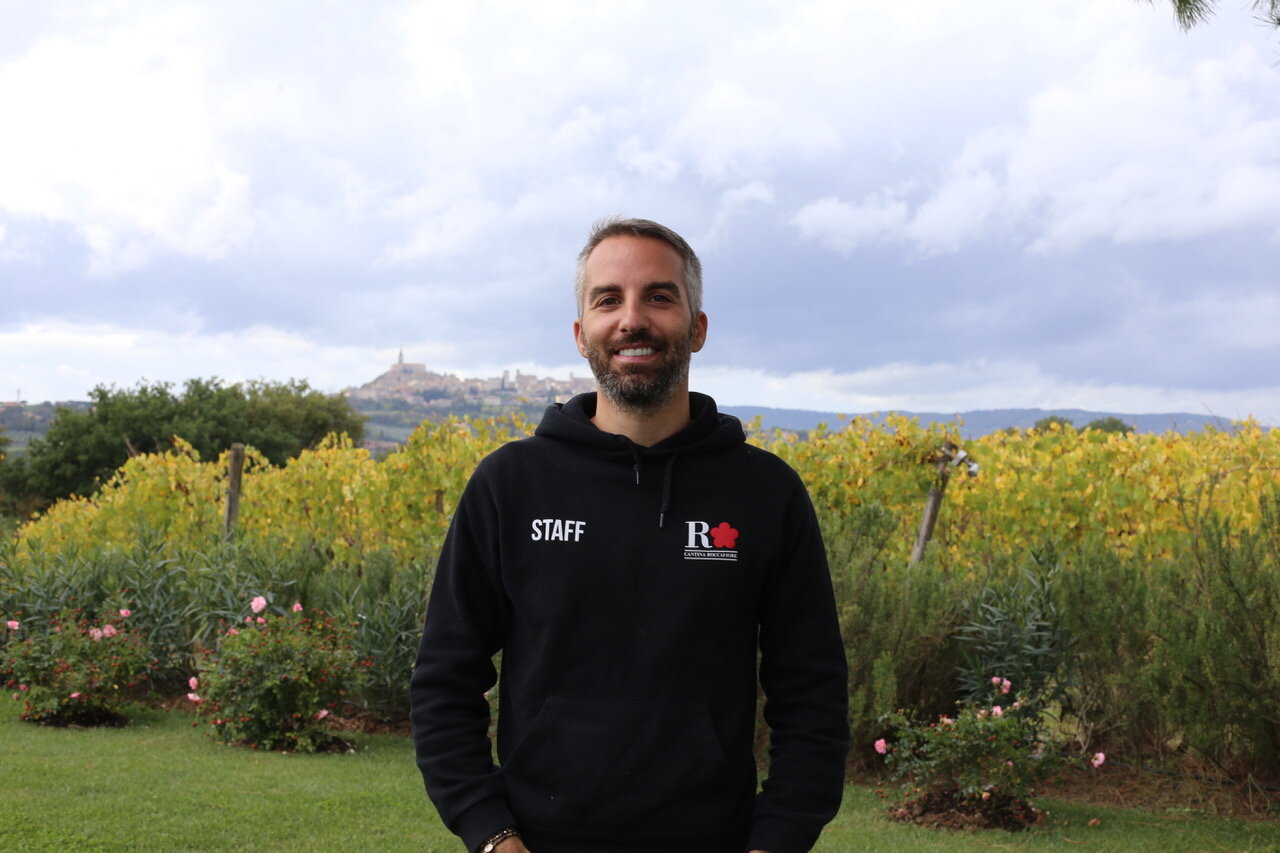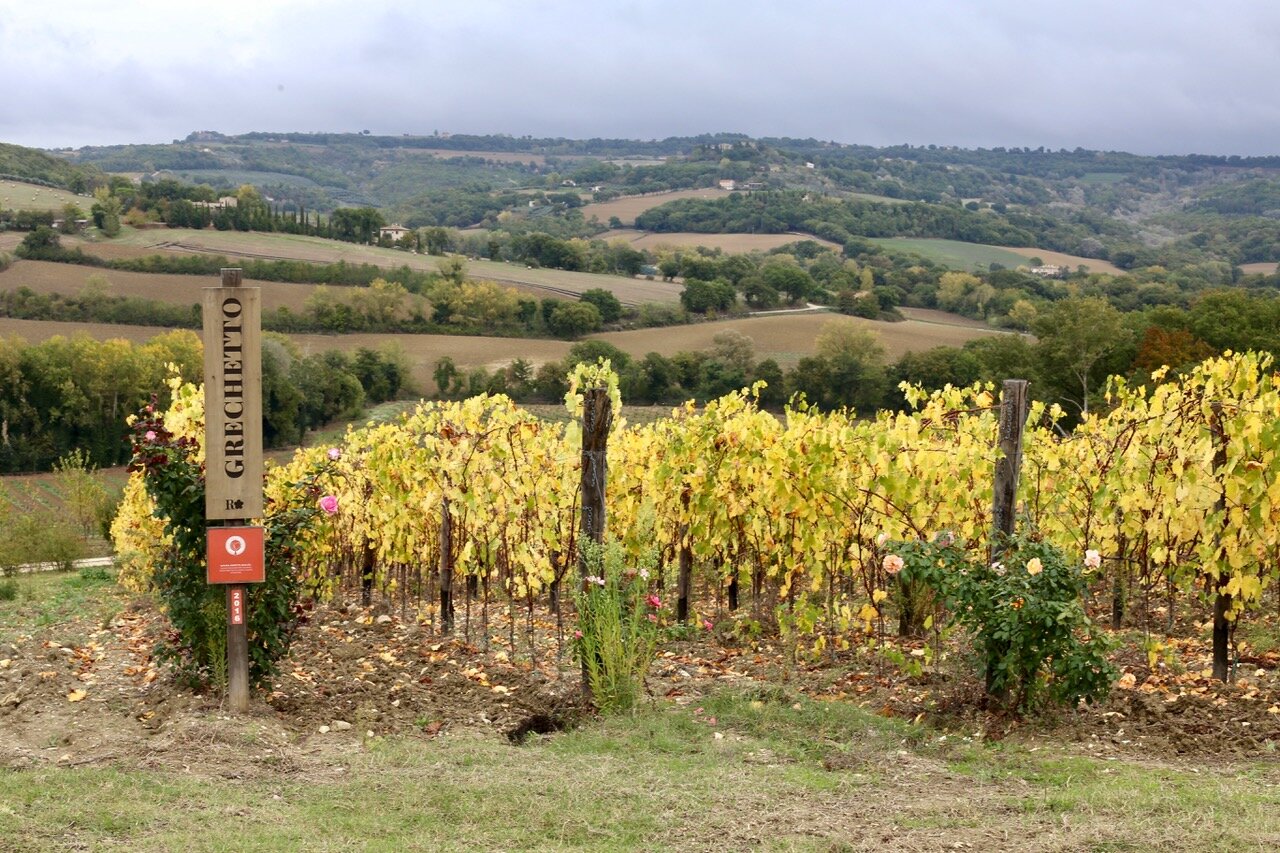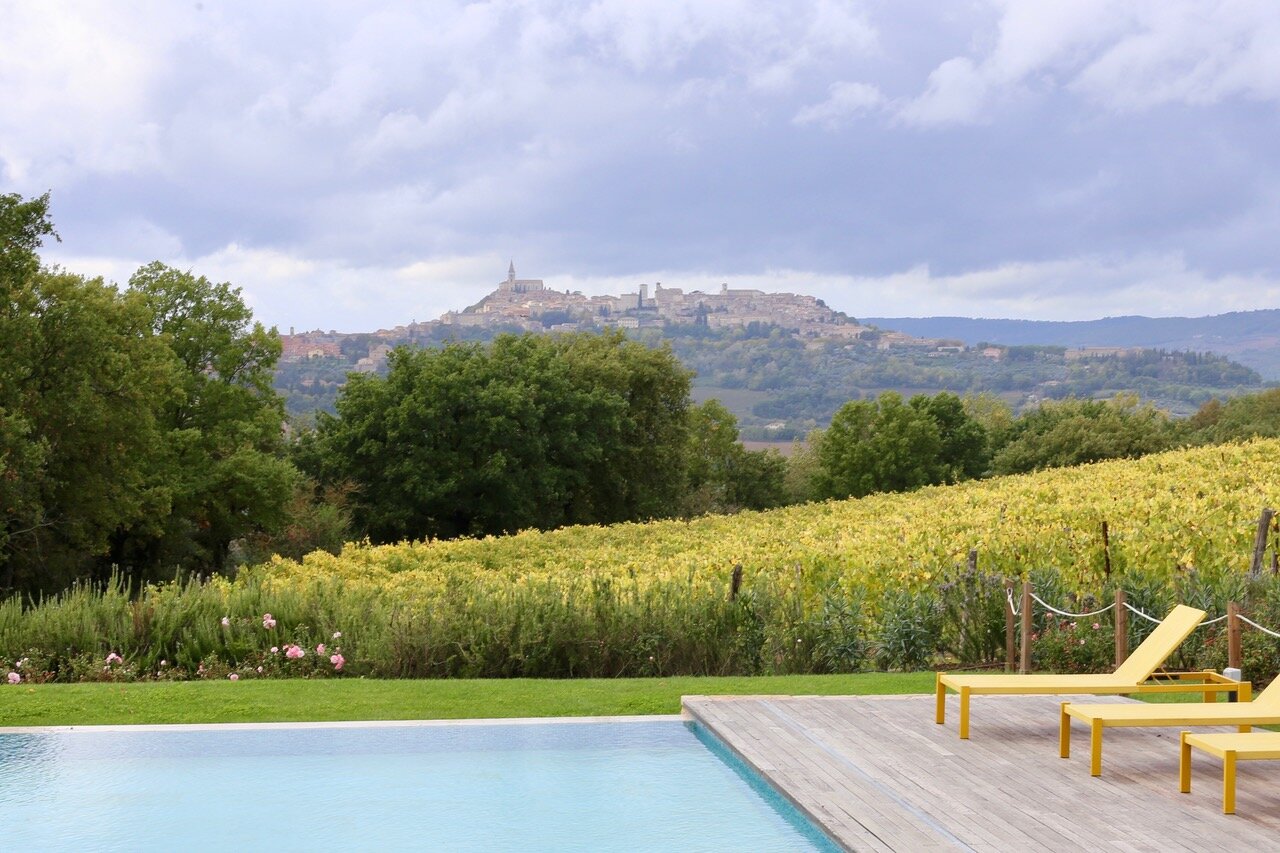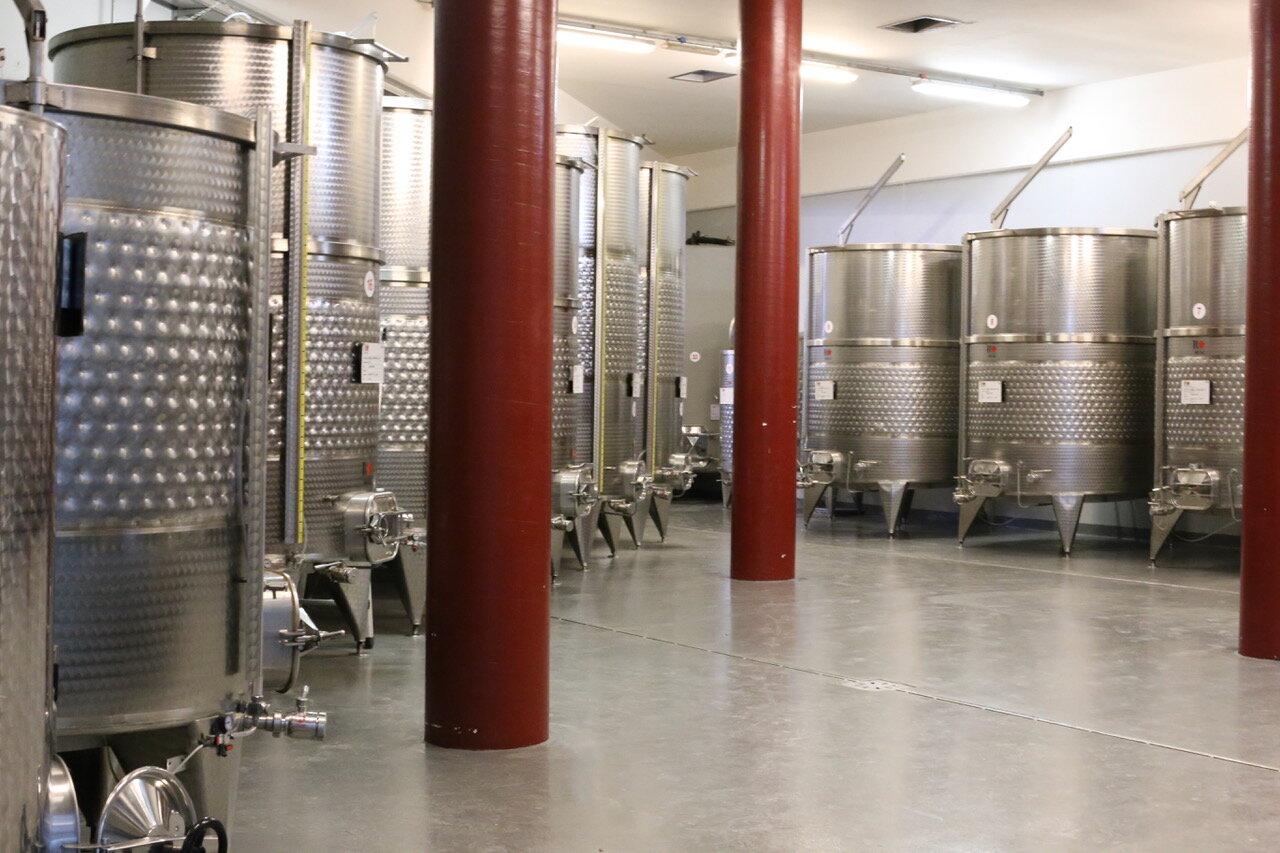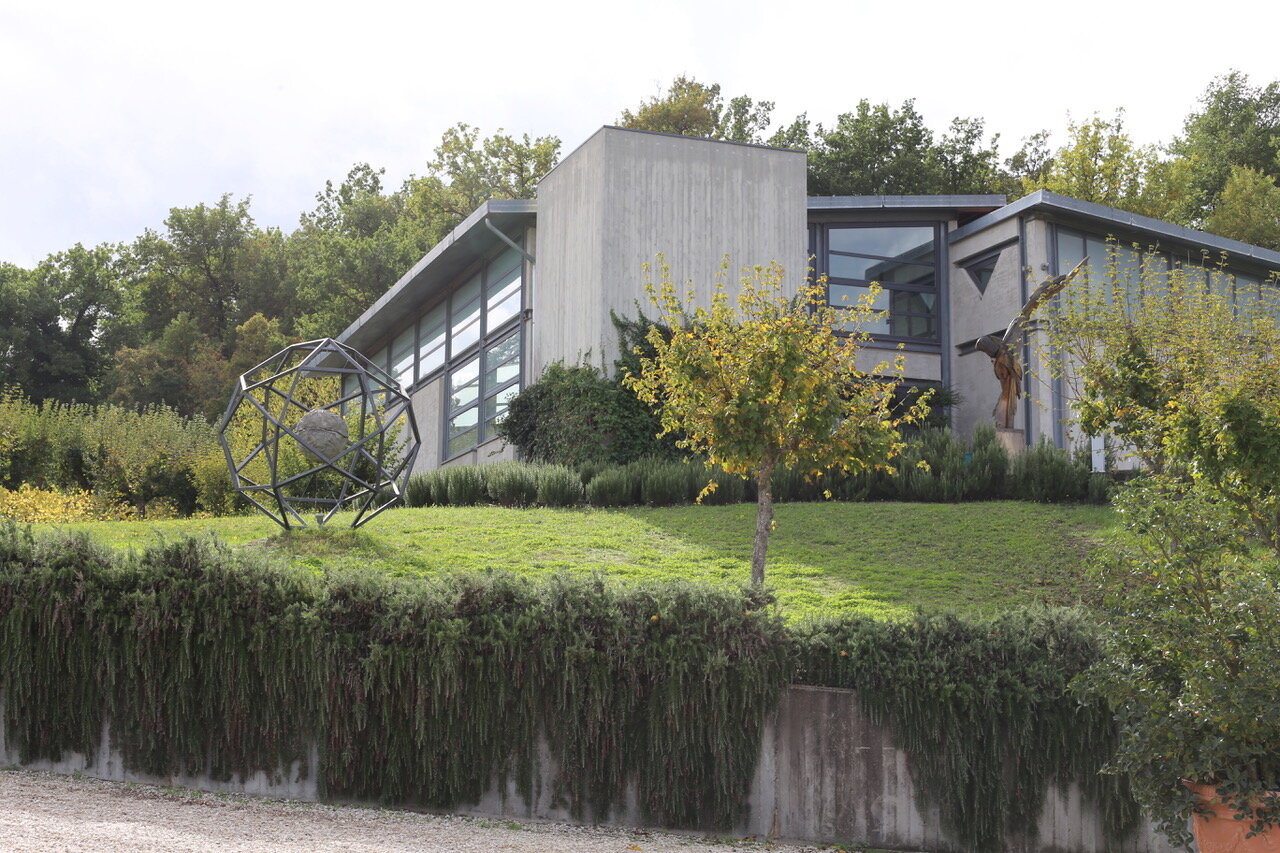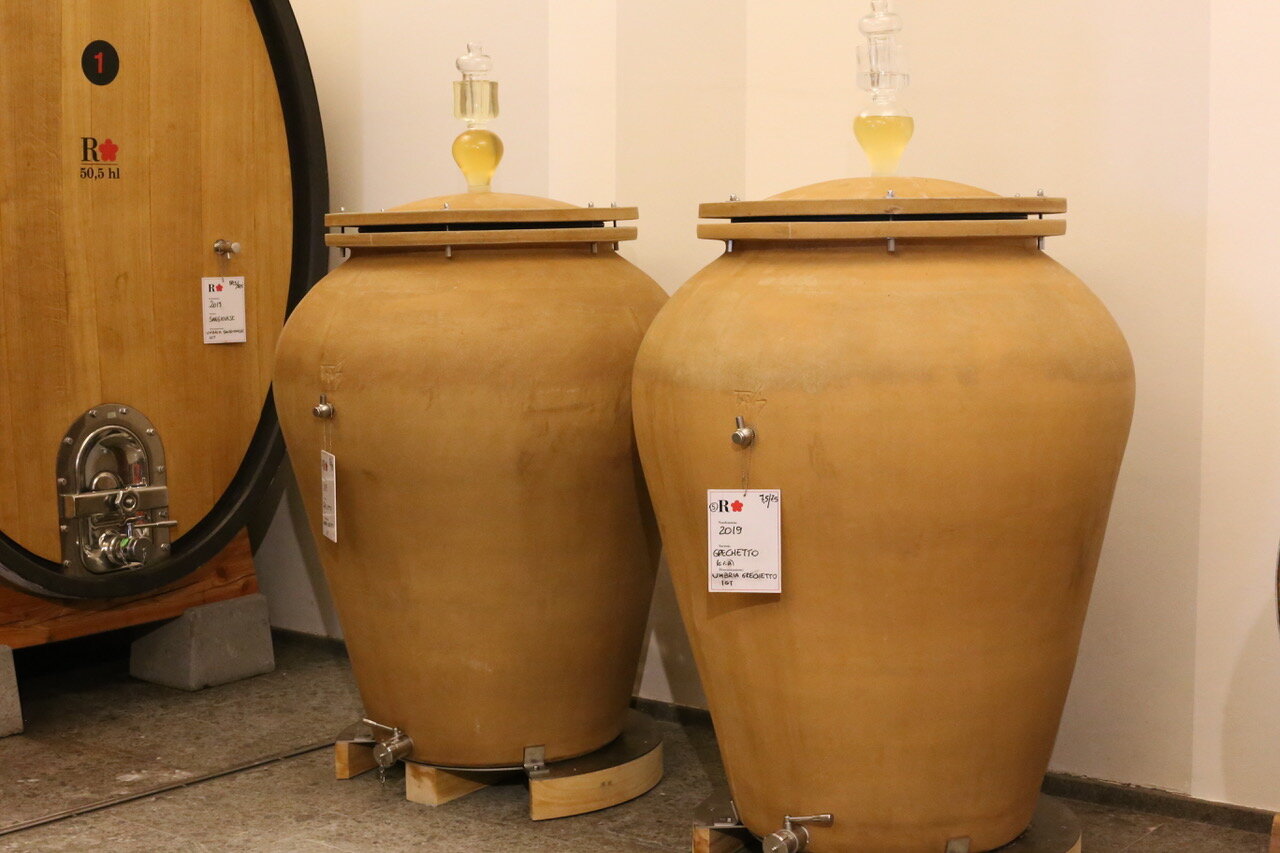Roccafiore
_____________________________________________
Non-certified Biodynamic viticulture
Low environmental impact production
Powered by renewable energy
_____________________________________________
About Roccafiore:
One of the best ways we find new producers is suggestions from current producers. This tip came from Angela Fronti, our Chianti Classico producer and a great wine-taster. Roccafiore was her suggestion: fresh, delicious Grechetto di Todi and Sangiovese, both grown near Todi in Umbria. Indigenous varieties, low-input but absolutely clean winemaking, dry wines (not a given these days), general deliciousness.
Cantina Roccafiore farms 15 hectares (almost 40 acres) of vineyards in the rolling hills of the Umbrian countryside near the town of Todi. The Baccarelli family (father and son) bought the property in 1999, planted the local Grechetto and Sangiovese along with small parcels of Moscato Giallo, Sagrantino, and Montepulciano, and made their first vintage in 2005. They chose a clone of Sangiovese that is native to Todi called VCR207, which is similar to the clone used in Montalcino to make Brunello. It produces wines with more elegance and finesse and they preferred it for its local origin.
Formerly in the energy business, they kept a mind toward sustainability from the beginning, building a renewable facility, using organic fuels for their tractors, and farming organically. Young Luca Baccarelli feels that this form of cultivation makes for soils richer in organic materials, fewer vine diseases, and healthier grapes. (See more on their sustainability program below). The training system is Guyot, on terraced hillsides; the soils are whitish clay, rich in limestone and chalk; and all vineyards face South East catching fresh winds from the nearby mountains. There are 6,500 vines per hectare, mostly from massal selection, and the yield is 85 quintals of grapes per hectare (roughly 3.5 tons per acre). Indigenous yeast fermentations. They use only estate-grown fruit.
“Working in a sustainable way, for us, means:
reducing the co2 using solar panels, all the required energy comes from this source;
reducing any environmental impact using organic fuels on the tractors (sunflower oil);
using light-glass bottles for reducing the weight of the shipping process;
saving rainwaters in a reservoir that is used for irrigation (not for vineyards);
low intervention and organic farming system in the vineyards for the care of the soil;
reducing the use of electric machinery on the winery using gravity;
the winery is very efficient in terms of energetic consumption and refrigeration (production on the basement).”
_____________________________________________
The Wines:
Grechetto ‘Fiordaliso’
100% Grechetto di Todi from the traditional G5 clone, planted in 2004 near Chioano, just east of Todi. The soil is whitish clay, rich in limestone and chalk.The grapes are harvested by hand, normally at the beginning of September. They remove the stalks and seeds by way of a special de-stemmer as ‘otherwise Grechetto can be very rustic.’ After pressing the grapes and settling out the juice, fermentation is carried out without yeast inoculation in temperature-controlled stainless steel tanks. The wine is aged in tank for six months on the fine lees, filtered but not fined or cold-stabilized, then bottled and released after another 3 months.
Luca describes his Grechetto as ‘dry, with a pleasing freshness, supported by minerality and persistence. The bouquet is of white flowers, with attractive notes of pink grapefruit and green apple.’ (My mouth is watering.)
Rosato
Roccafiore’s Rosato is made entirely of Sangiovese. Picked early for acidity, with a very short skin maceration (3-4 hours), fermented without yeast addition in stainless steel. Very pale pink color, with aromas and flavors of wild strawberries and a hint of herbs. Fresh acidity is balanced with juicy fruitiness. A perfect lighter summer rosé. Very versatile, perfect with salmon or tuna. Screw-cap for consistency.
Sangiovese ‘Melograno’
‘Melograno’ (pomegranate) is made entirely of Sangiovese, from a vineyard planted in 2004 at Chioano, just east of Todi in Umbria. The soil is whitish clay, rich in limestone and chalk. The grapes are picked at the middle or end of September, depending on the vintage. They remove the stalks and seeds by way of a special de-stemmer that removes the seeds so as ‘to prevent too much tannin or rusticity’ says Luca. After crushing, the grapes are fermented with the skins for about a week using no added yeast. After fermentation is complete and the wine is dry, the wine is pressed, then aged for 12 months in stainless steel tanks, filtered, and bottled. It is not fined or cold-stabilized. About 2,500 cases are produced.
Luca’s notes: ‘pleasing acidity, soft tannins, savory. Flavors of wild berries and plum, with a herbal note.’ The name Melograno means pomegranate, and an attractive savory sour character, reminiscent of the fruit, makes this wine beg for food. I would add notes of sour cherry and almond. Where’s the pizza?
_____________________________________________
more information:
Check out the Roccafiore website
About Roccafiore’s commitment to the environment
About Roccafiore’s approach to cultivating biodiversity
